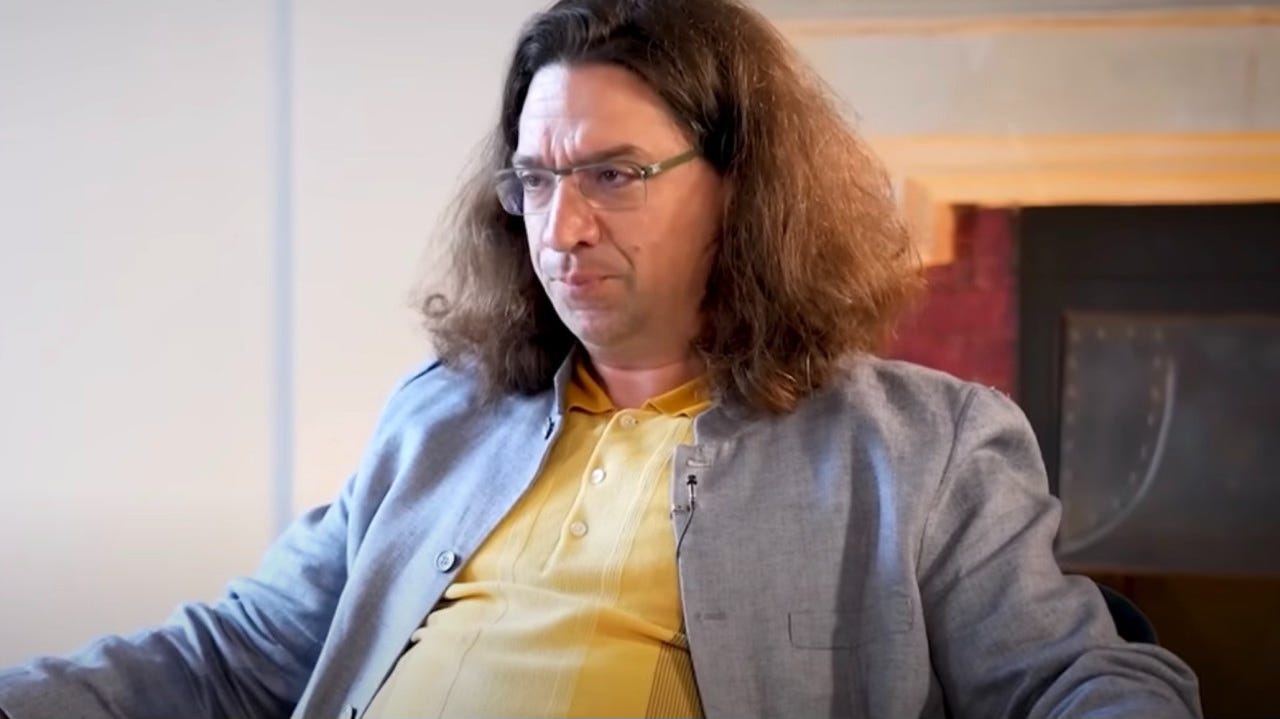Moldbug’s Misrepresentation of Monarchy
Disentangling Sacred Kingship From Sterile Technocracy
At the heart of the neoreactionary movement, also known as the “Dark Enlightenment” or NRx, we find Curtis Yarvin, a controversial thinker who goes by the pen-name of Mencius Moldbug. While his work has sparked renewed interest in monarchy, he has frequently conflated it with his own ideology. Yarvin’s reduction of monarchy to a tool for authoritarian rule undermines its historical, moral, and cultural significance, much to the detriment of the monarchist cause.
In this article, I will attempt to disentangle authentic monarchy from Yarvin’s NRx ideology and highlight the dangers of his misrepresentation.
The Historical and Moral Foundations of Monarchy
While monarchy is pragmatic in the sense that it is the most natural form of government, it is much deeper than that. It is a time-honored institution rooted in the tradition, continuity, and the sanctity of kingship. Monarchy, in its most authentic form, is best described as “sacred kingship” or “sacred royalty.”
Monarchs serve not only as symbols of unity, but also embody of the cultural and spiritual heritage of their respective nations. This institution draws from sacral concepts such as the divine right of kings, emphasizing the sovereign’s duty to serve their people justly and wisely.
The Neoreactionary Perversion
Authentic monarchy, as deserved above, stands in stark contrast to Yarvin’s sterile, utilitarian vision. His idea of monarchical rule is one of a CEO untethered to anything sacred, be it tradition, culture, or faith. Naming his form of government “Neocameralism” and “Patchwork,” he describes it as thus:
“The basic idea of Patchwork is … a global spiderweb of tens, even hundreds, of thousands of sovereign and independent mini-countries, each governed by its own joint-stock corporation without regard to the residents’ opinions. If residents don’t like their government, they can and should move. The design is all ‘exit,’ no ‘voice.’ … A Patchwork realm is a business—a corporation. Its capital is the patch it is sovereign over. The realm profits by making its real estate as valuable as possible … Even the oceans can and should be divided into patches; a naval realm is sovereign over, and profits by taxing, all economic activities within a patch of ocean.”1
To the observant reader, calling this “monarchy” could not be farther from the truth. Yarvin’s political model would be more accurately described as a Neofeudal Corporatocratic Technocracy, or NCT as I will call it for brevity’s sake.
Yarvin could have simply used the term “Neocameralism” for the sake of clarity. But instead, he persists in misusing the word “Monarchy.” He guts it of its historical meaning and roots, peels off its skin, and drapes it over his sterile technocratic fantasy. He calls it a “modified version of monarchy” while reducing it to a mere tool for consolidating power and implementing “efficient” governance.
Yarvin’s idea of a CEO head-of-state betrays a fundamental misunderstanding of monarchy’s essence, equating the monarch to a corporate manager rather than a sovereign steward of their realm. By stripping the institution of its moral and cultural dimensions, Yarvin distorts it into an elitist and mechanistic framework that serves only a technocratic elite. His political model prioritizes efficiency and control, often at the expense of justice, mercy, and the well-being of the people.
Authentic monarchy, in contrast, is inseparable from a moral order. The sovereign’s legitimacy stems from their service to a higher principle—whether divine, cultural, or national. NRx, with its cold calculation and focus on utilitarian NCT, ignores the deeply personal, human aspects of monarchy which makes it a cherished institution throughout history.
The Dangers of Yarvin’s Conflation
By conflating monarchy with his ideology, Yarvin tarnishes its reputation, alienating those who might otherwise support a return to traditional governance. His ideology twists this sacred institution into a vehicle for power, easily playing into the hands of anti-monarchists. This misrepresentation undermines the efforts of genuine monarchists to promote monarchy as a humane, just, and culturally rich system.
Monarchists must reject Yarvin’s reductionist, utilitarian approach and reclaim monarchy as a noble and meaningful form of governance. By emphasizing its moral, cultural and historical foundations, we can present a vision of monarchy that inspires loyalty and respect rather than fear and suspicion. Monarchy’s true strength lies not in cold efficiency, but in its ability to unite, uplift, and guide a nation through its shared heritage and values.
Conclusion
Curtis Yarvin’s misuse of the word “monarchy” is a gross distortion that threatens to undermine the institution’s true legacy. By rejecting his framework and championing the institution in its authentic form, we can ensure that it remains a beacon of stability, tradition, and justice in a world of conflict.
The next time you hear “neoreactionary,” think “technocrat.” Whenever you hear “neocameralism” and “Patchwork,” think “NCT.”




